
THE VOICE OF INTERNATIONAL LITHUANIA
|
VilNews has its own Google archive! Type a word in the above search box to find any article.
You can also follow us on Facebook. We have two different pages. Click to open and join.
|
Archive for February, 2011
- Posted by - (0) Comment
Consumer price indices
2011 02 14
PRESS RELEASE
CHANGES IN PRICES FOR CONSUMER GOODS AND SERVICES IN JANUARY 2011
OVER A MONTH, THE GREATEST PRICE INCREASE – 1.6 PER CENT – WAS OBSERVED IN PRICES FOR TRANSPORT GOODS AND SERVICES, WHILE PRICES FOR FOOTWEAR AND CLOTHING DROPPED BY 6 PER CENT
Statistics Lithuania informs that in January 2011, against December 2010, prices for consumer goods and services increased by 0.4 per cent. The change in prices was mostly determined by an increase in prices for food products and non-alcoholic beverages, transport goods and services, housing, water, electricity, gas and other fuels group of goods and services, as well as by a decrease in prices for clothing and footwear.
In January 2011, against December 2010, prices for consumer goods increased by 0.5 per cent, while prices for services remained almost unchanged.
A monthly change in prices for food products and non-alcoholic beverages was mostly determined by a 5.7 per cent increase in prices for fruits and berries, 1 per cent – milk and its products, cheese, eggs, 0.7 per cent – bread and cereals, 2.5 per cent – coffee, tea, cocoa, 1.6 per cent – vegetables and potatoes, 2.2 per cent – butter, oils and fats.
A change in prices for transport goods and services was mostly influenced by a 2.9 per cent increase in prices for fuel (prices for petrol grew by 2 per cent, diesel fuel – 4.4 per cent, liquefied gas – 5.3 per cent), 6.2 per cent – passenger transport by rail, 0.7 per cent – motor cars, as well as by a 5.2 per cent decrease in prices for passenger transport by air.
Changes in prices for housing, water, electricity, gas and other fuels group of goods and services were mostly determined by a 14.9 per cent increase in prices for solid fuel, 5.1 per cent – liquefied gas for cooking, as well as by a 6.2 per cent price drop in prices for natural gas.
Changes in prices for clothing and footwear were influence – due to seasonal discounts – by a 6.7 per cent price drop in prices for clothing, 5.2 per cent – footwear.
In 2011, the annual inflation (January 2011, against January 2010) stood at 2.9 per cent. The annual change was determined by an increase in prices for food products and non-alcoholic beverages, transport goods and services, housing, water, electricity, gas and other fuels group of goods and services, as well as by a decrease in prices for clothing and footwear, communication goods and services, furnishings, household equipment and routine maintenance of the house goods and services.
Over a year, prices for consumer goods grew by 3.9 per cent, while prices for services dropped by 0.2 per cent.
Table 1. Rates of change in prices for consumer goods and services, January 2010
Per cent
COICOP divisions of consumer goods and services |
Relative share (weight) of consumption expenditure in total consumption expenditure |
Growth, drop (-) |
||
|
January 2010, against |
average annual |
|||
|
December 2010 |
January 2010 |
January 2010–2011 |
||
|
Total CPI |
100.0 |
0.4 |
2.9 |
1.6 |
|
Food products and non-alcoholic beverages |
26.6 |
1.1 |
6.2 |
0.5 |
|
Alcoholic beverages and tobacco products |
8.0 |
1.0 |
1.8 |
9.6 |
|
Clothing and footwear |
6.8 |
-6.0 |
-4.5 |
-5.5 |
|
Housing, water, electricity, gas and other fuels |
12.9 |
1.1 |
8.1 |
5.7 |
|
Furnishings, household equipment and routine maintenance |
6.1 |
0.6 |
-2.2 |
-2.9 |
|
Health care |
6.8 |
0.0 |
0.0 |
0.8 |
|
Transport |
11.5 |
1.6 |
7.7 |
6.1 |
|
Communications |
3.6 |
0.3 |
-4.4 |
-5.2 |
|
Recreation and culture |
6.1 |
-0.5 |
-1.8 |
-2.1 |
|
Education |
1.7 |
-0.1 |
-0.5 |
6.4 |
|
Hotels, cafes and restaurants |
4.9 |
0.4 |
0.1 |
-0.7 |
|
Miscellaneous goods and services |
5.0 |
1.1 |
0.1 |
0.2 |
Table 2. COICOP classes of consumer goods and services whose rates of change in prices had a decisive influence on the overall price change over the month
(January 2011, against December 2010)
Influence, percentage points |
|||
|
Fuels and lubricants |
+0.188 |
Clothing |
-0.294 |
|
Solid fuel |
+0.158 |
Footwear |
-0.107 |
|
Fruits and berries |
+0.082 |
Gas |
-0.030 |
|
Other non-electric appliances, articles and products for personal care |
+0.038 |
Package holidays |
-0.015 |
|
Milk and its products, cheese, eggs |
+0.037 |
Passenger transport by air |
-0.014 |
|
Non-durable household goods |
+0.035 |
Furniture and furnishings |
-0.010 |
INFORMATION ON THE REVISION OF THE SYSTEM OF WEIGHTS
Statistics Lithuania annually revises the weighting system, used for the calculation of the Consumer Price Index (CPI), and updates it taking into consideration the changes in the structure of household consumption expenditure.
The new weighting system for the CPI (see Table 1) is based on the data of 2008 (reference period of weights) household budget survey on monetary consumption expenditure, industry, domestic and foreign trade, transport and services, energy statistics, as well as other institutions’ information. Available statistical information of 2010 is also used.
The price reference period is December 2010, i.e. in 2011 each month’s prices will be compared against this period’s prices. According to the Laspeyres formula, applied to the calculation of the CPI, data on weights and prices in the reference periods have to be consistent. Therefore, the statistical data on consumption expenditure in cash 2008 were updated up to December 2010 using respective CPIs, and a new weighting system for the calculation of the 2011 CPI was developed. For the calculation, the weights were used with the accuracy to the fifth decimal place.
The weighting system developed for the calculation of the 2011 CPI was conditioned by the changed structure of household consumption, which was due to the change in prices of consumer goods and services, increase in earnings and pensions. The most significant changes in the weighting system were as follows: the increase in the specific weight of consumption expenditure on food products and non-alcoholic beverages (the greatest increase was observed in expenditure on vegetables and potatoes, milk and its products, cheese, eggs, the decrease in expenditure was observed in prices for meat and its products) – by 0.9 percentage points, housing, water, electricity, gas and other fuels products and services – by 0.8 percentage points; the decrease in the specific weight of consumption expenditure on recreation and culture goods and services – by 0.6 percentage points, communication goods and services – by 0.4 percentage points.
The current weighting system covers 514 elementary aggregates of household consumption expenditure. These elementary aggregates are further specified using additional sources of information (information of other statistical areas and institutions) to the level of representative goods and services. In the CPI, elementary aggregates of household consumption goods and services are represented by 889 goods and services.
INFORMATION ON CHANGES IN METHODOLOGY
From January 2011, the Statistics Lithuania applies the standards for the treatment of seasonal products in the Harmonised Indices of Consumer Prices (HICP) set in Commission Regulation (EC) No 330/2009 of 22 April 2009.
More information on the provisions and minimal standards and the implementation thereof of the Commission Regulation (EC) No 330/2009 is available at the website of Statistics Lithuania.
Concepts
Inflation – a decrease in the purchasing power of a currency unit, which manifests itself in a long-term increase in the average general price level.
Annual inflation shows relative changes in the average price rate between the current month and the corresponding month of the previous year.
Average annual inflation shows relative changes in the average price rate between the average of the latest twelve months and the average of the corresponding previous twelve months.
COICOP – Classification of Individual Consumption by Purpose.
A press release on the February 2011 CPI is due on 8 March 2011.
|
First Deputy Director General, |
Vilija Lapėnienė |
|
Contact: Nadiežda Alejeva |
- Bookmark :
- Digg
- del.icio.us
- Stumbleupon
- Redit it
Guggenheim rejects Vilnius as new museum site – fraud investigations seem to follow
- Posted by - (1) Comment

The Guggenheim Museum was planned built here at River Neris in Vilnius.
After years of planning and excitement among the European Arts community, corruption is cited as the cause for The Guggenheim Museum Initiative to no longer considering Vilnius, as the site for the new regional art museum.
Led by the National Audit Office, allegations are being levelled at groups within the Vilnius municipal government for misappropriating funds which were to be used for a feasibility study regarding the building of the museum and related facilities.
The Hermitage/Guggenheim Vilnius Museum was to be designed by Zahos Hadid, an Iraqi architect with a firm in London- the futuristic design would have been built next to the Neris River, along the White Bridge. Helsinki is now awarded the honour.
Source: http://www.shortnews.com
- Bookmark :
- Digg
- del.icio.us
- Stumbleupon
- Redit it
- Posted by - (0) Comment
Unemployment rate (survey data)
2011 02 18
PRESS RELEASE
CHANGES IN THE UNEMPLOYMENT RATE IN 2010
IN 2010 THE UNEMPLOYMENT RATE STOOD AT 17.8 PER CENT
According to the estimates of the Labour Force Survey, conducted by Statistics Lithuania, the unemployment rate in the country in 2010 stood at 17.8 per cent, which is by 4.1 percentage points more than in 2009.
In 2010, the male unemployment rate was higher than the female one: the male unemployment rate stood at 21.2, the female one – at 14.4 per cent. Over the year, the male unemployment rate grew by 4.2, the female one – by 4 percentage points. In 2010, the unemployment rate in urban areas was lower than that in rural areas: the unemployment rate in urban areas stood at 16, in rural areas – at 22.4 per cent (in 2009, at 12.6 and 16.5 per cent respectively).
The youth (aged 15–24) unemployment rate in 2010, compared to 2009, grew by 5.9 percentage points and stood at 35.1 per cent. In 2010, the youth unemployment rate was twice as high as the total unemployment rate in the country.
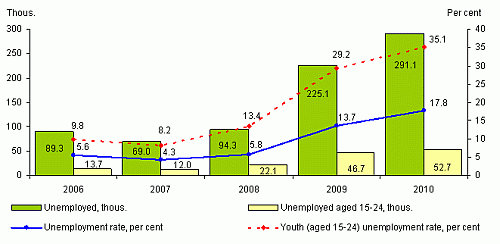
In 2010, based on the estimates of Statistics Lithuania, the number of the unemployed amounted to 291.1 thousand and, compared to 2009, grew 1.3 times. In 2010, each ninth resident of Lithuania aged 15–74 was unemployed (in 2009, each twelfth).
In 2010, the long-term unemployed, i.e. persons who have been looking for a job for a year and longer, accounted for 41.4 per cent of the total number of the unemployed. In 2010, there were 120.6 thousand long-term unemployed persons in the country. Over the year, the number of the long-term unemployed grew 2.3 times.
In 2010, based on the data of the Lithuanian Labour Exchange, the average number of the registered unemployed stood at 312.1 thousand, which is 1.5 times more than in 2009.
Based on the Labour Force Survey estimates, in 2010, there were 1 million 344 thousand persons working in the country; compared to 2009, this figure dropped by 72.2 thousand, or 5.1 per cent. Over the year, the largest decrease in the number of persons employed was observed in construction, where it decreased by 29.3 thousand, or 23.9 per cent; the number of persons employed in industry dropped by 22.2 thousand (8.5 per cent), while in professional, scientific and technical and real estate activities a slight growth was observed – by 4.2 and 1.6 thousand (9.3 and 13.5 per cent) respectively.
In 2010, the employment rate of the population aged 15–64 stood at 57.8 per cent; over the year, it dropped by 2.3 percentage points. The employment rate of males aged 15–64 was lower than that of females. In 2010, the male employment rate stood at 56.8, the female one – at 58.7 per cent; over the year, it decreased by 2.7 and 2 percentage points respectively.
In 2010, the youth (aged 15–24) employment rate stood at 19.2 per cent; over the year, it dropped by 2.3 percentage points. In 2010, the employment rate of the elderly (aged 55–64) stood at 48.6 per cent; over the year, it dropped by 3 percentage points.
IN IV QUARTER 2010, THE UNEMPLOYMENT RATE DECREASED TO 17.1 PER CENT
In IV quarter 2010, based on the estimates of Statistics Lithuania, the unemployment rate in the country stood at 17.1 per cent, which is by 0.7 percentage point less than in III quarter 2010. The male unemployment rate in IV quarter 2010 stood at 19.1, the female one – at 15.1 per cent.
In IV quarter 2010, the youth (aged 15–24) unemployment rate stood at 32.4 per cent; compared to III quarter 2010, it dropped by 3.1 percentage points.
In IV quarter 2010, the number of the unemployed amounted to 281.9 thousand, which is by 10.1 thousand, or 3.5 per cent, less than in III quarter 2010.
Based on the Labour Force Survey estimates, in IV quarter 2010, there were 1 million 367 thousand persons working in the country; compared to III quarter 2010, this figure grew by 15.9 thousand. Over the quarter, an increase in the number of persons employed was observed in construction (by 8 thousand), human health and social work (4.8 thousand), and transport and storage (3.9 thousand).
In IV quarter 2010, the employment rate of the population aged 15–64 stood at 59.2 per cent; over the quarter, it grew by 0.7 percentage point. The employment rate of males aged 15–64 was higher than that of females. In IV quarter 2010, the male employment rate stood at 59.4, the female one – at 59.1 per cent.
In IV quarter 2010, the youth (aged 15–24) employment rate stood at 21.4 per cent; over the quarter, it grew by 1.6 percentage points. In IV quarter 2010, the employment rate of the elderly (aged 55–64) stood at 50.3 per cent; over the quarter, it grew by 2 percentage points.
X X X
Statistical information is based on the Labour Force Survey data. The survey was carried out applying a sampling method. In IV quarter 2010, 14.4 thousand (0.5 per cent) residents of Lithuania aged 15 and over had been interviewed, and the survey results were subsequently recalculated for the total population of the country.
UNEMPLOYMENT RATE IN THE EUROPEAN UNION AND IN THE WORLD
Based on provisional data of the Statistical Office of the European Union (Eurostat), the unemployment rate in the European Union in 2010 stood at 9.6 per cent. The highest unemployment rate among the EU Member States was recorded in Spain (20.1 per cent), the lowest – in the Netherlands (4.5 per cent).
Based on provisional data of Eurostat, in 2010, the unemployment rate in the United States of America stood at 9.6, in Japan – at 5.1 per cent.
A press release on changes in the unemployment rate in I quarter 2011 is due on 20 May 2011.
|
Deputy Director General |
Dalia Ambrozaitienė |
| Contact: Violeta Skamaročienė Deputy Head, Living Standard and Employment Statistics Division Tel. (+370 5) 236 4958 Email violeta.skamarociene@stat.gov.lt |
- Bookmark :
- Digg
- del.icio.us
- Stumbleupon
- Redit it
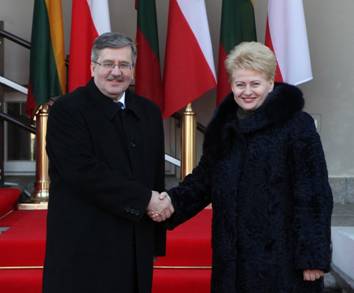
Lithuanian President D. Grybauskaite and Polish President B. Komorowski at the celebration of Lithuania’s Independence Day, 16 February
As Polish President Bronislaw Komorowski participated in Lithuanian Independence Day celebrations in Vilnius on the 16th of February, a Polish MEP has called for an immediate improvement in what have been rocky relations between the two neighbours of late. This is the first official visit to Lithuania by Bronislaw Komorowski since he was elected head of state last summer.
President Komorowski was taking part in the main Independence Day ceremony in Vilnius and was also laying a wreath at a memorial to 100,000 Poles, mostly Jewish, who were murdered by German Nazi occupiers and Lithuanian collaborators in the Vilnius’ suburb of Panerai between 1941 and 1944.
According to unofficial sources, Polish Radio had been told that President Komorowski would use a meeting with Lithuanian head of state Dalia Grybauskaitė to raise concerns over the situation of the Polish minority in Lithuania.
- Bookmark :
- Digg
- del.icio.us
- Stumbleupon
- Redit it

Carl Bildt, Sweden’s Foreign Minister
Sweden will unseal classified diplomatic files dealing with the 1991 collapse of the Soviet Union, Foreign Minister Carl Bildt says.
"We will do something that has really never been done before in Sweden: declassifying an important part of the foreign ministry's archive," Bildt wrote on his official blog this week.
"We're talking about virtually all of our up-until-now secret reports from the collapse of the Soviet Union and the Baltic freedom movement under the dramatic year 1991," he added.
Foreign ministry spokesman Anders Jörle told AFP the documents to be unsealed were diplomatic notes from Swedish envoys posted in the Baltic countries and the city of Leningrad, now Saint Petersburg, at the end of the Soviet era.
- Bookmark :
- Digg
- del.icio.us
- Stumbleupon
- Redit it
 Three Lithuanian men who robbed a Co Westmeath jewellery store in Ireland while under duress from a Lithuanian criminal gang were this week told to return to Lithuania or face five years in prison.
Three Lithuanian men who robbed a Co Westmeath jewellery store in Ireland while under duress from a Lithuanian criminal gang were this week told to return to Lithuania or face five years in prison.
Egidijus Peciulis (30), from Joncua, Gytis Zienius (35) and Ovidijus Rumba (30), both from Kaunas, admitted robbing almost €94,000 in rings from Angela Blacoe Jewellers in Athlone on March 6th, 2010.
Judge Anthony Kennedy said at Mullingar Circuit Court it was accepted the three acted under duress “from start to finish”. A “controlling mastermind” had a “terrifying command” over them.
Passports were taken from the men, and they were told their lives and the lives of their families were in danger if they did not commit the robbery, the court was told.
The men used pepper spray on Valerie Byrne, a jewellery shop customer, and staff member Theresa Carey during the raid. None of the jewellery was ever recovered.
Peciulis claimed he had been promised construction work in Ireland, but when he arrived a man took his passport and told him to commit the robbery. His life and his family were under threat.
Judge Kennedy noted the concern of the DPP that “it would send the wrong message that if runners, stooges are caught in Ireland all that would happen to them is that they would be deported”.
However, he believed the criminal “bosses” would not care “one way or the other” what happens to the “underlings”.
He imposed five-year prison sentences on the trio backdated to March 10th. The remainder of the sentences was suspended on condition they return to Lithuania and stay out of Ireland for 10 years.
- Bookmark :
- Digg
- del.icio.us
- Stumbleupon
- Redit it
16 February 1918 was the day Lithuania again could declare its independence – after 123 years of Russian occupation
- Posted by - (0) Comment
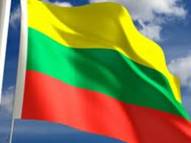 It was a sunny yet frosty winter day, 16 February, this year. Lithuania celebrated its independence. Because t was on this very day in 1918 that 20 members of the Council of Lithuania, headed by Dr. Jonas Basanavičius signed the Act of Independence. 93 years (nearly a century!) have passed since that time.
It was a sunny yet frosty winter day, 16 February, this year. Lithuania celebrated its independence. Because t was on this very day in 1918 that 20 members of the Council of Lithuania, headed by Dr. Jonas Basanavičius signed the Act of Independence. 93 years (nearly a century!) have passed since that time.
Sadly, Lithuania stayed independent only 22 years after 1918, and disappeared from the political map of Europe due to German and Soviet occupation for the period 1940-1990. Yet the memory about significance of February 16th still remains close to our people`s hearts.
Some very sad news happened 16 February this year when one of the most prominent modern Lithuanian poets, Justinas Marcinkevičius, died at the age of 81. As patriot and humanist, Justinas Marcinkevičius was a remarkable figure in the Sąjūdis movement for Lithuanian Independence. His death is a great loss for Lithuania and it`s people.
During the celebration of the Independence Day, current president of Lithuania, Dalia Grybauskaite, and other state officials attended a ceremony at the Rasos Cemetery in Vilnius to honour the memory of the deceased signatories of the Act of Independence.
According to the tradition, however, the main commemorating event took place by the House of Signatories in Pilies Street, where the Act of Lithuania`s Independence was signed. Hundreds of people of different age and background gathered, despite the blessing of extremely low temperatures.
Read more at our
Section 9 – LITHUANIA TODAY
- Bookmark :
- Digg
- del.icio.us
- Stumbleupon
- Redit it
 Justinas Marcinkevičius (10 March 1930 - 16 February 2011), the prominent poet and playwright, just died. Having grown up during the post-war period, Marcinkevičius evoked in his poetry a romanticized version of childhood spent in the Lithuanian countryside, of first love, of man`s relationship with nature. In his poetry specific and solid peasant thinking was combined with a mind seeking to draw broad general conclusions, and the tradition of Lithuanian poetry singing the Earth`s praises with contemporary modes of poetic thought. As a poet, he sought to grasp the essence of national experience and give it fresh artistic expression. Justinas Marcinkevičius was regarded as one of the most prominent members of the Sąjūdis movement.
Justinas Marcinkevičius (10 March 1930 - 16 February 2011), the prominent poet and playwright, just died. Having grown up during the post-war period, Marcinkevičius evoked in his poetry a romanticized version of childhood spent in the Lithuanian countryside, of first love, of man`s relationship with nature. In his poetry specific and solid peasant thinking was combined with a mind seeking to draw broad general conclusions, and the tradition of Lithuanian poetry singing the Earth`s praises with contemporary modes of poetic thought. As a poet, he sought to grasp the essence of national experience and give it fresh artistic expression. Justinas Marcinkevičius was regarded as one of the most prominent members of the Sąjūdis movement.
- Bookmark :
- Digg
- del.icio.us
- Stumbleupon
- Redit it
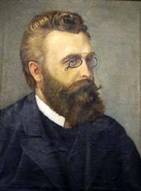 Jonas Basanavičius (23 November 1851 – 16 February1927), the father of Lithuania`s independence declaration in 1918, also died on 16 February. He was an Ideologist of Lithuanian national movement, the founder and editor of the first prohibited newspaper of national revival Ausra (The Dawn). One of the initiators and the Chairman of the Organizing Committee behind the Lithuanian Science Society in 1907. He wrote about 40 works on history, archaeology, cultural history, ethnography, folklore studies, linguistics and medicine.
Jonas Basanavičius (23 November 1851 – 16 February1927), the father of Lithuania`s independence declaration in 1918, also died on 16 February. He was an Ideologist of Lithuanian national movement, the founder and editor of the first prohibited newspaper of national revival Ausra (The Dawn). One of the initiators and the Chairman of the Organizing Committee behind the Lithuanian Science Society in 1907. He wrote about 40 works on history, archaeology, cultural history, ethnography, folklore studies, linguistics and medicine.
- Bookmark :
- Digg
- del.icio.us
- Stumbleupon
- Redit it
Connecting people
- Posted by - (1) Comment
|
- Bookmark :
- Digg
- del.icio.us
- Stumbleupon
- Redit it
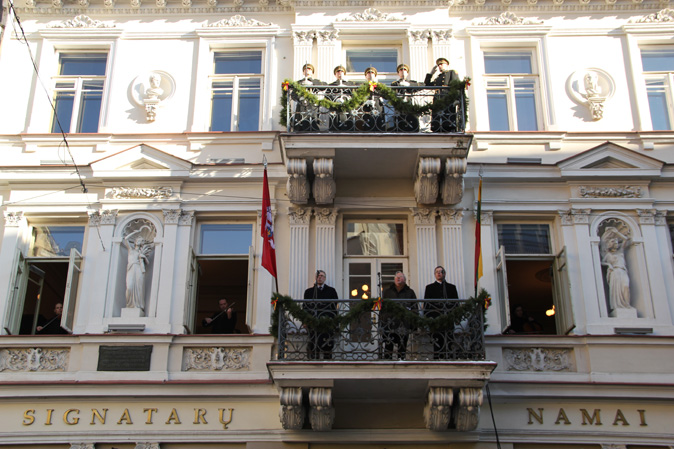
Text: Diana Koval
On a sunny yet frosty winter day, 16 February, Lithuania celebrated its independence. It was on this very day in 1918 that 20 members of the Council of Lithuania, headed by Dr. Jonas Basanavičius signed the Act of Independence. 93 years (nearly a century!) have passed since that time.
Sadly, Lithuania stayed independent only 22 years after 1918, and disappeared from the political map of Europe due to German and Soviet occupation for the period 1940-1990. Yet the memory about significance of February 16th still remains close to our people’s hearts.
Some very sad news happened 16 February this year when one of the most prominent modern Lithuanian poets, Justinas Marcinkevičius, died at the age of 81. As patriot and humanist, Justinas Marcinkevičius was a remarkable figure in the Sąjūdis movement for Lithuanian Independence. His death is a great loss for Lithuania and it‘s people.
During the celebration of the Independence Day, current president of Lithuania, Dalia Grybauskaite, and other state officials attended a ceremony at the Rasos Cemetery in Vilnius to honour the memory of the deceased signatories of the Act of Independence.
According to the tradition, however, the main commemorating event took place by the House of Signatories in Pilies Street, where the Act of Lithuania’s Independence was signed. Hundreds of people of different age and background gathered, despite the blessing of extremely low temperatures.
Some of them came right from the solemn High Mass which was held at the Vilnius Cathedral. The event started with a recitation poem by Justinas Marcinkevicius “Singing Lithuania”. As always, professor Vytautas Landsbergis, spoke from the balcony, expressing sorrow and sadness due to death of the great poet of Lithuania.
He also pointed out that people should strengthen their conscience in order to keep Lithuania a strong and resilient country. After the speech of professor Landsbergis, everyone sang the National Hymn of Lithuania accompanied by a String Quartet.
It was a truly great feeling to be there, surrounded by hundreds of small flags and smiling people, realizing that we all, after all, live in a free, independent country!
- Bookmark :
- Digg
- del.icio.us
- Stumbleupon
- Redit it
- Posted by - (0) Comment
Two good debates from 2010
To give you a better idea of the debates we've had in the previous year, we reproduc
|
Arrogance, ignorance and
an airport comparison
Arrogance and ignorance are not particularly positive characteristics of anyone, and I understand it well if some of our VilNews' readers, who see that I use these words together with a picture of our Prime Minister, predict that I will now be criticising him. So let me hurry to say that these two words are meant for all questionable behaviours seen performed by our governing forces since 1990, not solely for Mr. Kubilius. Read more
|
IMAGE
Andrius Kubilius, Lithuania’s Prime Minister |
LACK OF COMMON SENSE BY PEOPLE POSITIONED AND TASKED WITH LEADERSHIP
Thank you Mr. Myhre for this copy and mostly for your gallant effort in pointing to the lack of common sense by people positioned and tasked with leadership in very important matters. After decades of Communist style living it is possible that the population has not yet regained clarity, confidence and with it the will to keep self serving arrogance out of ranks of the Nation's leaders.
Best regards,
Algirdas Vaitkus
Mission Viejo, California
I CONGRATULATE YOU ON YOUR COURAGE AND CLARITY
Dear Aage,
Bravo on an excellent issue. I congratulate you on your courage and clarity. Whether people agree or disagree with whatever point, I do hope many understand how much love, care and constructive friendship you are offering to your adopted country. Nothing can be better for a new democracy than a spirit of free civic debate and encouraging more and more local people to.... stay and debate!
Cheers
Dovid Katz
North Wales
THE NECESSITY TO DEVELOP A CULTURE OF MUTUAL TRUST AND RESPECT
Dear Aage!
Could not resist myself writing you and congratulating you for very good article! Enjoyed reading it!
It illustrates perfectly the Adizes management methodology (ref. www.adizes.com), which I am working with currently. It talks about necessity to develop a culture of mutual trust and respect within any organization in order to be successful (could be business organization or country). And one of the important elements creating such culture is willingness to hear and understand other people and other opinions.
You just provided a perfect example about the lack of mutual trust and respect in Lithuanian society! Very well done!
Best regards,
Virginijus Kundrotas
Kaunas
ANOTHER WELL-WRITTEN AND INFORMATIVE ISSUE OF VILNEWS
Hello Aage,
Congratulations on another well-written and informative issue of VilNews. The issues addressed speak for themselves.
I would like to bring to your attention another issue that you might like to look into, i.e. the subject of Lithuanian artists abroad. There is currently an exhibit at Radvilu Rumai Museum focusing on Lithuanian artists abroad. One of the featured artists, Danute Nitecki, is local to the San Francisco Bay Area, http://www.ldm.lt/RRM/Dovana_
Danute opened her home to the local Lithuanian community this Easter for a 4th year in a row. Her biggest concern these days is finding a long term home for her art. I would bet that her concern is common to other Lithuanian artists living abroad.
Do you think that this is something the national government might like to address, or would it be better to approach local municipalities, or private organizations.
Best regards,
Algis Ratnikas
San Francisco, USA
WE SHOULD BE GLAD THAT OUR LEADERS HAVE BEEN FINANCIALLY CONSERVATIVE
Hi,
I am new to your newsletter, but I find your observations thought provoking, which is always good, whether one agrees or not, as it provides a basis for growth. So much in circulation in today's media is just fluff with little meaning or value.
One point in counterbalance. There is a lot of criticism of Lithuania's government, and while I agree that things could have been done better, we should be very, very glad that our leaders have been financially conservative, unlike the leadership of Vilnius, which has created huge debts for our children to pay, while goods and services were bought at inflated prices that helped cronies.
People look to the fantasy of the US and think that government can spend freely. The US is truly living in a fantasy world that works so long as they can convince foreign countries to hoard US dollars and keep them off the domestic US market. This option is not available for Lithuania. The result, sooner or later, is super inflation like what existed in Germany around 1923 when the taxi drivers purposely drove their fares by a bak so they could adjust the rate by the latest mark value. I myself have a couple billion marks from that time.
Iki,
Arturas Baranauskas
Vilnius
EASIER TO OBTAIN AN AUDIENCE WITH THE POPE,
THAN WITH A MINISTER FOR FOREIGN AFFAIRS OF LITHUANIA
Dear Mr. Myhre,
I enjoy your positive articles about Lithuania and send them to some 70 friends around the world. The less positive, I keep to myself.
You have lived long enough in Lithuania and must realize that many of the problems of the present day Lithuania are due to their reluctance to learn from the Western countries or accept advice from Lithuanians who lived and studied in the West. The relative success of Lithuania after World War I was largely due to the replacement of Russian educated officials by those who got their degrees in the West. My own father was the first Lithuanian with a degree in forestry from a Western university and introduced major reforms in the forest management, which survived even during the Communist occupation.
Alas, after 20 years of restoration of independence to paraphrase Kipling "The East is East, the West is West and the twain shall never (so far) meet". I spoke to a number of Lithuanians with degrees from top Western universities, who don't want to return to Lithuania - according to them, the "natives" know everything better.
I might add that for me it was easier to obtain an audience with the Pope, than with a Minister for Foreign Affairs of Lithuania.
Yours sincerely,
Ambassador Algirdas Zemaitis (ret.)
Vilnius – Rome
LISTEN TO SCANDINAVIAN ADVICE, NOT ARROGANTLY
ASSUMING THAT WE THE LITHUANIANS KNOW BEST
Hello Aage,
Hope you had a good Easter. I have just read the latest edition of VilNews, thank you for another good job. I agree with your editorial comments. In particular: "Being a Norwegian, I believe Norway and the other Scandinavian countries would have been willing to stretch to great lengths to provide help and advice for the crisis–hit Lithuania and the two other Baltic States. But they had to be asked. Our Lithuanian leaders should refrain from arrogance and avoid ignorance by seeking advice where good help and advice is to be found, domestically and internationally. Can they do that, there is every reason to foresee a bright future for this nation."
I have two comments to make on that. First, I believe that even now it's not too late to ask the Scandinavian countries for help. But you are exactly right: the Scandinavian countries would want in return a guarantee that whatever help they give will be used wisely, listen to Scandinavian advice, not arrogantly assuming that we the Lithuanians know best. Closely linked to this is the second thing: no one wants to give help if they think it's going to be wasted corruptly. Lithuanians need to be able to give the Scandinavian aid-givers a chance to supervise what is going on, the right to inspect and audit, to make sure that the aid is being used as agreed, and not to build the villas of mafiozai and corrupt politicians and public servants on land that they have misappropriated from public forests and lakefronts.
Which brings me back to my key theme (sorry if I'm repetitious): Lithuania will not make much serious progress until bigger efforts are made to stamp out bribery and corruption.
Best regards
Gintautas Kaminskas
Wollongong, Australia
"DUMMHEIT UND STOLZ WACHSEN AUF EINEM HOLZ".
Dear Aage,
Thank you for the fine arrogance story. Along the lines of your airport comparison, attached is another shameful blemish on the airport. I wholeheartedly agree that the airport is the first image of a country to the visitor. The dungeon like interior structure for processing the arriving passengers certainly doesn't leave much of an image.
I wrote a story in Draugas on robber like taxi fees from the airport to downtown Vilnius. Also that the taxicabs are drenched with nicotine odor and loud blaring Russian radio music listened by mostly Russian speaking taxicab drivers, causing my daughter to ask whether we really have arrived in Lithuania.
There is no cash pay-phone at the airport. To make even a local call one has to buy an expensive multiple call pay phone card, and how would a non-Lithuanian speaking visitor find out about that. Moreover, lack of an official non-commercial welcome and information center or booth to the arriving non-Lithuanian speaking foreigner is another striking example of not understanding the impact of an image that a foreign visitor receives.
On arrogance. Several months ago I had arranged a visit between the minister of energy and a CEO of an important nuclear reactor manufacturer. The meeting was supposed to be for the benefit of the minister on information of what is forthcoming in the future, particularly in small reactors and the possibility of establishing a European affiliate of the company in Lithuania.
The minister graciously extended an invitation to the CEO, but the minister's secretariat refused to extend even the slightest courtesy to this visit, such as picking up the visitor from the airport and transporting him to the meeting, setting up a meeting agenda, or even providing to the visitor's office the address of the ministry. They claimed that this was just another sales visit, and the visitor should take care of everything on his own. As a result the CEO canceled the meeting and eventually went to London. The European affiliate was established in the UK. Thus through such arrogance another opportunity was lost.
There is a lot truth in the German proverb "Dummheit und Stolz wachsen auf einem Holz".
Best regards,
Stan Backaitis
Washington, USA
SENDING E-MAIL TO LITHUANIA IS LIKE
SENDING IT TO THE BLACK HOLE OF THE UNIVERSE
Dear Aage:
I wish to ad another bit of advise to your fine article on Ignorance.
Lithuania's business people and government officials are yet to learn the necessity of good communications. Without a two way communication there is no possibility for further contacts. One of the most frustrating experiences I had was in e-mail (before that it was in regular "snail mail") communications. I would write and write but receive no reply (with only a few exceptions).
When I was working, our management had a rule - "answer all letters received in not more than three days. If there is no answer to be given, than at least acknowledge the receipt".
One of my American colleagues, who was sincerely trying to help Lithuania, said "Sending e-mail to Lithuania is like sending it to the black hole of the universe. Everything goes one way and nothing comes back". No wander he is now disenchanted and helping others.
Vytautas Sliupas, P.E.
Burlingame, California
LITHUANIA'S BUSINESS PEOPLE AND GOVERNMENT OFFICIALS
ARE YET TO LEARN THE NECESSITY OF GOOD COMMUNICATIONS
Dear Aage:
I totally agree with Mr. Sliupas! [ref. his above letter] I once sent an e-mail to a Lithuanian who responded eight months later! And that is just one example -- there have been numerous others. Perhaps they just prefer face-to-face communication, but don't know how to communicate that to you :-).
Jennifer Lambert
USA
|
What can be done to improve Lithuania's reputation to the rest of the world? A reader who responded to our latest VilNews issue argues that we have begun to go in the footsteps of other Lithuanian media in describing Lithuania in a rather negative way. I can well understand such a reaction, but it must also be said that unfortunately there has been a relatively large number of cases and circumstances in this country that deserve to be described in quite critical terms, such as:
IMAGE
|
|
Dear Aage, I am an American-Lithuanian born in the US. My father was a ‘DP' after the war, my mother was born in the US. My wife is Lithuanian-American and our four children speak Lithuanian. We have been active in Lithuanian-American post WWII immigration, activities all our lives. We lived in Lithuania 1992 -95 when I was a consultant for the US Treasury there at the Bank of Lithuania. You did "stick your neck out" in making the comments you did but I, for one, agree with you wholeheartedly. I think many others, particularly those who have lived both in Lithuania and outside the country, also agree. The trick is, what to do about it or, for those of us living outside, why should we be concerned? As life goes on, roots are deepened overseas and Lithuania turns its back on us or makes no effort to either woo back the Diaspora, attract tourists or foreign investment (are these all culturally linked?) an "ace up Lithuania's sleeve" will be lost forever. To be sure, internally generated progress over the last 20 years has been great and the cultural life, in Vilnius particularly, makes life here in Cleveland, or almost anywhere else I can afford to live, pretty dull. Lithuania, however, given its precarious geographic position and small population needs to be exceptional in how it organizes itself and how it takes advantage of every scrap of resource (particularly human) that it can. Good luck to you Aage. Rimas Aukstuolis, Cleveland (American-Lithuanian) Vice President Structured Trade Finance, Fifth Third Bank
|
|
Dear Aage, Your critical comments on, and wishes for, Lithuania in this issue are excellent. I agree with every word, and can only hope that more Lithuanians would take your very informed, friendly, and insightful message to heart! Best wishes, Mykolas J. Drunga, Kaunas (American-Lithuanian) Broadcaster at Lithuanian State Radio |
|
Hello and better year 2010! I agree 100 % with you about the thesis you wrote in this issue of the journal. Things in reality are exactly as you clearly and straight have written. The reason why you often get critics is the limited knowledge of short-term "visitors", such as business consultants, diplomat crops, coming here for some years and then trying to make a picture from official Lithuanian sources or lousy press articles. I think especially you and partly me (14th year passing here) with our good touch with local population, business-life, some understanding of language and Scandinavian background, values, are looking around without coloured spectacles. Still, almost every day on, with one's private and business life meet corruption, centralization of business (Rubikon, VP etc) and pre-agreed tenders, cartels. Lithuania has got a lot of very good opportunities to become one of the success stories in Europe for agriculture, tourism, ITservices, leading harbour country by the Baltic Sea etc. but the style must be changed as you say. Thanks, Aage, for your brave and honest articles earlier, now and in the future. Krister Kastren, Klaipeda (Finnish) |
|
Dear Aage, Many thanks. That is a beautiful piece of writing and a well laid out story perfectly befitting the January 13th. May I have permission to send this to the Lithuanian daily ‘Draugas’ for publication in Lithuanian and ‘Bridges’ for publication in English? Best regards, Stasys Backaitis, Washington dc (American-Lithuanian) |
|
Dear Aage: Many thanks for writing your Chronicle of Lithuania! We, Lithuanians in diaspora or in Lithuania itself, should be very grateful and obliged to Great Friends of Lithuania like you! With all due respect, I believe your criticism is too mild though. Unfortunately, the “inconvenient truth” is that the Soviet communist nomenklatura has hijacked Lithuania’s development in the last almost two decades and, consequently, our country has largely horribly wasted a truly impressive and immense political and economic capital of global good will, so excruciatingly hard earned by the Victims of the January 13th, 1991 brutal Soviet aggression and by the blood and brains of the legendary Lithuanian freedom fighters, world renowned anti-communist dissident movements, and political refugees in the West in the post-WW II years. Wishing you all the best for 2010 and beyond, I remain Yours sincerely, Valdas Samonis, PhD, CPC (Canadian – Lithuanian) The Web Professor of Global Management(SM) |
|
Hi Aage. Scary reading, but nevertheless correct, unfortunately. Well and brave done! Best regards, Arthur Simonsen, Vilnius (Norwegian)
|
|
Responses to VilNews 7 January |
|
Email 1 from Mr. Andrius Pauga, Consellor at the Embassy of Lithuania in Portugal: Dear. Mr. Myhre, Again and again, negative information prevails in your newsletter, as if nothing good happens in Lithuania (except road fatalities down). Even the Capital of Culture is described as a failure. I am very disappointed that you follow this bad tradition of Lithuanian media. Another thing: two Lithuanian ministers are criticised in the first article, many quotes of their critics, but no quote of any of the ministers. That’s really partial.
Email 2 from Mr. Pauga: Thank you for your answer. I fully agree with you that telling truth is of utmost importance. What I am very concern about is that Lithuanian media (perhaps 90 percent of it) for many years keeps trying to pre-select the truth, to manipulate with truth - not only by giving most of attention to negative facts, but also by constant devaluating and depreciating any positive facts or developments in our country. What we have as a result is a prevailing negativism and lack of patriotism among Lithuanians, and this is worse than any economic crisis. I am deeply convinced that the mission of mass media is to form our society in a positive way, to help our people to discover real values, to teach them how to love their country, to help them to understand finally that there is no better place in the world for Lithuanians (and maybe for some expatriates as well) than Lithuania. I really hope that your newsletter, while being addressed more to international than local readers, will notice and discover all the colours of Lithuania, not only dark ones. I am looking forward to read next issues of it. By the way, have you heard that, according to 2010 Quality of Life Index published by the “International Living” magazine (http://www1. Sincerely, Andrius Pauga, Lisbon (Lithuanian) Consellor at the Embassy of Lithuania in Portugal
|
|
Hi Aage, My guess is that most of the people who have complained about the newsletter are probably people in the Lithuanian government. Of course, they themselves are not angels when it comes to manipulating media, and the very fact they are complaining directly to you only shows that they are exerting pressure so that you fashion a message that justifies the institutional bullshit they tell themselves and that they want everyone else to buy into. This is a problem not just in Lithuania, but it is still a Lithuanian problem. On this topic, two quotes bear remembering: "Propaganda is to a democracy what the bludgeon is to a totalitarian state." Noam Chomsky, the famous MIT linguist. "Political language -- and with variations this is true of all political parties, from Conservatives to Anarchists -- is designed to make lies sound truthful and murder respectable, and to give an appearance of solidity to pure wind." George Orwell Darius Ross, Vilnius (Canadian-Lithuanian) Journalist |
|
Dear Darius,
|
|
Dear Aage, Greetings and best wishes from Virginia. Aage I think telling as you see it should be a good example to Lithuanian news media and political commentators. The Chronicle you wrote is excellent. You have done a great job and should be proud of it. I tend to agree with Valdas Simonis, PhD that your criticism of things that are not right are too mild if anything. I wish you continued success. Jonas Kronkaitis, Virginia USA (American-Lithuanian) Brigadier General, former Commander of Lithuania’s Armed Forces # |
|
Dear Jonas and Valdas Simonis, The Sajudis crew who had represented so much of hope of a steady course and a better future for Lithuania in 1990-91 became older and disillusioned, with ever-new factions and officers. None of them succeeded in convincingly show their abilities to take over management of the ship, while the nomenclature crew on the other hand used the time well to take positions and places that they retain to this day. Still, the ship and the fleet around it proceeded slowly forwards, until finally also the nomenclature captain reached the age of retirement. None of his former top officers convinced as he had done. Then came the year 2008, and the ship again got a captain and a crew with roots in the original Sajudis crew. Unfortunately for them, the wind had increased sharply exactly when they took over, and they have since been forced to fight a terrible storm that still has not settled. Many small boats, especially the oldest and weakest ones, have already capsized and disappeared in the waves, often because the mother ship has not provided them with fuel and provisions but rather has sought to rescue the mother ship. Fortunately, there has during this time been more experienced larger vessels and fleets from Western countries nearby, and many ask themselves today why the new crew of the Lithuanian mother ship has not been much more willing to ask for help and supplies from these even when the number of small boats that capsized was tragically high. Meanwhile the old ship owners have taken advantage of the situation by seemingly reaching out a helping hand to many of those who already 20 years ago doubted whether Sajudis' route to the west was the best choice.
13 January 1991 was a day of triumph for Sajudis, why not pick up the baton?
|
|
Dear Aage I have found your article and the responses I have seen so far quite fascinating. At first I wondered why you had written it. Generally you are writing to an expat communtity and are we a force for change or does hope spring eternal? But on reflection I can see the merit of such a discussion. I have worked and lived here for only some 10 years, rathes less than you. Ten years ago I was hugely concerned that amongst the 3 Baltic States Lithuania was the most entrenched in its old ways and the most reluctant to change. But I still fought hard to preserve my firms‘s investment and continuing investment in Lithuania as one day „they would get it right“. Sadly 10 years on “they“ have not and my initial fears have proved right. Yes, professional firms (such as my own former firm) have managed some reasonable growth and pretty marginal profitability but no where near the advancement that should have been possible. But the culture of political governance has changed very little if at all. And this has constrained the development of a proactive and sustainable business culture. Lithuania is short of natural resources (apart from timber and fresh water). Its main potential economic resource is its people. And if properly lead by quality politicians, good business leaders and a forward thinking educational system that could mean a lot. Lithuanians have a reputation as being hard working and diligent. But sadly their reputation as “ëntrepreneurs“ is better known as thieves of one sort or another. What is lacking is LEADERSHIP. I speak of political leadership which cares for the development of the country rather than politicians‘ own wallets. (Just look at the energy crisis now facing the country. This was forseeable at least 10 years ago. Various solutions were proposed THEN but no action taken – probably because political leaders could not agree on how to share out the “goodies“.) I have spoken to many people (including my wife!) with strong political views (with which I may or not agree – but that is not the point). But when I say why don‘t you get diretly involved in politics? They wan‘t no part of it – the political system has no credibility. In terms of business leadership of Lithuanian companies, with a very few exceptions, I see a serious lack of role models for the budding entrepreneur. The young people I speak to do not see any future in joining a Lithuanian company as a route to developing a career. They would prefer to look overseas. And I also see the major shareholders of successful Lithuanian companies uprooting their investments away from Lithuania as they do not see their future potential as being encouraged here. I am also concerned that the educational system is weak in terms of its business training . I come from the UK and was Treasurer of a significant university and on the Board of a major business school. We strived for good involvement of businesses from all spheres (banking to manufacturing, Japanese, German, even American) and generally achieved it. My attempts in Lithuania fell on deaf years. So Aage, I generally agree with your sentiments and those of some of your respondents. You are short on solutions as I think are most of us who care about Lithuania, especially in the short term. But the long term requires strong, ethical and transparent leaders in all aspects of political and business life. Where will we find them? I would welcome any comments. Good luck! Hugh Tomas, Vilnius (British) Former Senior Partner of PriceWaterhouseCoopers |
|
Lithuania’s way of treating their people living abroad (VilNews 13 January) |
|
I am one of those Lithuanians whose family emigrated to the United States in the aftermath of World War II. My parents sent us to Lithuanian school every Saturday, so that we grew up reading, writing, and speaking the language fluently. This makes my trips to Lietuva so much more pleasant. I can relate to my cousins, I can make new friends, and I appreciate the history. On one of my visits to Lietuva, I noted that there is a definite prejudice against American-Lithuanians such as myself. You noted that the indigenous Lithuanian people need to appreciate what the diaspora has done in terms of raising support and goodwill worldwide. I wholeheartedly agree, and I appreciate your opinions. Viso gero, Jurate Burns, Destin Florida USA (American-Lithuanian) Destin Library Director |
|
Dear Jurate, Sorry to hear, but as I said in my comment article; ‘One of Lithuania's most prominent human resources is undoubtedly the country's large diasporas around the globe, groups of people and their descendants who left their mother country because of war, difficult economic conditions, political persecution, etc. These diaspora groups are in my view too little listened to or consulted from the Lithuanian authorities, which is very sad for a nation that so desperately needs all possible support and assistance from the hundreds of thousands who still have Lithuania in their hearts.’ Let’s see what we can do to change this kind of attitude from authorities and common people here… Aage |
- Bookmark :
- Digg
- del.icio.us
- Stumbleupon
- Redit it
- Posted by - (0) Comment
Section Editor
LIISA LEITZINGER

Liisa Leitzinger moved to Lithuania from Finland 15 years ago. She has graduated from Vilnius University and worked as Vilnius City Guide for tourists from Finland and as a director of a small guest house and restaurant “Mano Liza” in Vilnius Old Town. “My guests are always pleasantly surprised about Lithuania”, says Liisa, “hotels are relatively new and unique, food has homemade taste to it, prices are the lowest in Europe and the Vilnius Old Town charm never fails!”
Contact email: liisa.leitzinger@gmail.com
Web page: www.hotelinvilnius.com
EVALDA ŠIŠKAUSKIENĖ

Evalda Šiškauskienė is a prominent part of Lithuania‘s hotel, restaraunt and hospitality industry. Her twenty five years of experience includes various director positions at some of the finest hotels in Vilnius and ownership of three very popular restaurants in the Vilnius area. From 1991to 2008 she served as President of Lithuanian Hotel and Restaurant Association and was recently reelected for another four years. She is also experienced in lobbying and working with government, state institutions and ministries. She is also an EXCOM member in HOTREC - HOTREC is the trade association of hotels, restaurants and cafes in the European Union bringing together 40 national hospitality associations in 24 countries across Europe - from Portugal to Finland and from Ireland to Greece. Evalda has Masters degrees in Philology from Vilnius Univesity and also studied Psychology.She is fluent in Lithuanian, Russian and English. She is now part of “ JP STUDIO” Hotel Consultancy Company.
Email: evalda@lvra.lt
Web site: www.jpstudija.lt
BARBARA ISHERWOOD

Barbara Isherwood is President of IWAV (the International Women's Association of Vilnius), a charitable organization and support group that unites women living in Lithuania. IWAV organizes monthly coffee mornings to which all members and newcomers are invited to share news or just chat and enjoy the treats. The association also offers many other opportunities to socialize; from Lunch Bunch to Book Club to Playgroup to regular Evening Socials. IWAV is also an increasingly important charitable presence in Lithuania as each year we host a very popular Charity Christmas Bazaar and a springtime Breast Cancer Awareness Event.
Email: barbara@mikelittle.lt
- Bookmark :
- Digg
- del.icio.us
- Stumbleupon
- Redit it
- Posted by - (1) Comment

CONSUL GREETINGS
from the
Lithuanian Consulate in Telemark, Norway
|
|
|
by
Carl Thomas Carlsten
Honorary Consul/dr. Philos
It is a Sunday in fall 2006. The place: Skien city, the capital of Telemark County. The top diplomats from the Lithuanian Embassy in Oslo, ambassador Alfonsas Eidintas and 1th secretary Regimantas Jablonskas with families, are visiting the famous Telemark canal. Mr. Jablonskas has asked me to organize the tour. No wonder they want to see this marvellous engineer victory from 1892, lifting sea travellers 72 meters up from ocean level on the 105 km long route from Skien to Dalen deep into southern Norway. http://www.telemarkskanalen.no/eng/ The scenery along the canal is just marvellous, as American tourists say. For dinner: Salmon and elk. The weather is absolutely perfect. The tour is absolutely successful. The final is absolutely surprising: Out of the blue the ambassador asks me to open an honorary consulate!
What brought this about?
I married Irena Maria Bajoraite Petkevic from Kaunas in 1999. She practiced as medical doctor, ophthalmologist and micro surgeon at Kaunas University Hospital. There and then in late July she said farewell to family, eye department and city, and moved with me to Telemark, Norway.
My interest for Lithuania grew, my knowledge about Lithuanians wishes and needs expanded, and my network in Norway gave proposals and solutions. Several bilateral projects were initiated and carried through with assistance from private citizens, public institutions, rotary clubs, and the Embassy in Oslo. I guess the consulate question rooted from this soil!
I myself am a senior advisor for the educational-psychological staff in Skien city. My career started as a teacher, moving through speech therapist practice and educational-psychological advisor diploma to a dr. philos title from Bergen University in 1999. Through job relations and membership in a variety of organizations and clubs I have the network that is the supposition to handle consular challenges. The consulate opened February 1th, 2008.
And what are these challenges? It is: «To serve as advisory, coordinating, and helping authority in Telemark County for Lithuanian citizens and institutions, and for citizens and institutions in Telemark towards Lithuania.»

Inspecting the Iron Wolf Brigade.
Practically this meant for 2010:
Cultural and political goals:
To establish and enhance cultural connections between Lithuania and Telemark:
• Translate and publish a Lituanian book into Norwegian (Tur-retur Sibir)
• Arrange an art excursion to Lithuania.
• Arrange an excursion to Lithuania about defence and security policy.
Infrastructural goals:
To establish and enhance social connections between Lithuania and Telemark:
• Maintain relations with The Catholic Church in Telemark.
• Maintain relations with The Police Director in Telemark.
• Build network between Norwegian and Lithuanian politicians.
Social goals:
To promote the wellfare of Lithuanians in Telemark, and the interests of Lithuania:
• Help in ways possible Lithuanian individuals and families.
• Participate in county related arrangements where it is possible to promote Lithuania.
Economy-related goals:
To establish and enhance business connections between Lithuania and Telemark:
• Maintain the relation with Skien Chamber of Commerce.
• Maintain the relation with The Norwegian -Lithuanian Chamber of Commerce.
• Work for affecting citizen of Telemark to visit Lithuania.
This «roadmap» gave structure and direction in my consular activities in 2010. When the annual report was sent the Embassy in primo January 2011, I could conclude that all goals were met in a proper way. Maybe most important this year, is the publishing of the book «Tur-Retur Sibir/Tour-Retour Siberia», the product of initiative from 2008:
It is November 2010.
The address is Dronningensgate 3, Oslo. http://no.mfa.lt/
«Tour-Retour Siberia» is about to be presented.
There, at the Embassy of The Republic of Lithuania, journalists and diplomats, civilians and military personnel, Lithuanians and Norwegians are gathered. Before us stands a small, modest, elderly woman. She quietly tells her family's story, a history shared by most families in Lithuania, Latvia and Estonia, our close neighbours. The author is the 78 year old teacher Dainora Urboniené from Panevezys. She has come to Norway for this reason only, her husband, children and friends following her. 246 - Regina Lukoševičienė. Jei tavimi patiki, turi pasiryžti ir ... (page 15).
Her book, titled «Tur-Retur Sibir» is a frightening narrative about how the soviets treated people in the Baltics during the years I myself grew up. Lithuania became a victim of the German-Soviet covenant in 1939. Two years after, the republic was dominated by the communists. The deportations started. 10% of the population, mainly political leaders, intellectuals and farmers, «enemies of the people», were arrested. The grim railroad journey went to Siberia on cattle wagons. One hole in the wall for air. One in the floor for everything else. Dainora Urboniené and her family became deported. Her little brother died after short time. Her father also after forced labour and shortage of food. Little Dainora and her mother were left alone in some of the most remote wilderness in Siberia. After the war they succeded in smuggling Dainora back to Lithuania. Under constant threat of re-deportation she managed to get her teacher licence. She founded family, and it is her daughter Rasa Jukneviciené who is currently Lithuania's Minister of Defence. The book tells Dainora's and her mother's struggle to survive and to return to Lithuania. ”Tur-Retur Sibir” is the first eyewitness narrative of the communist savageness published in Norway. Her book is the retrospective Baltic parallel to Anne Frank's diary!
The Lithuanians are preparing the 4th edition these days.
The book deserves to be translated and published in other languages and countries.
That is my challenge to my fellow consuls!
Skien, Telemark, Norway
Medio February 2011

Dainora Urboniené’s book «Tur-Retur Sibir» is a frightening narrative about how the soviets treated people in the Baltics during the years I myself grew up.
- Bookmark :
- Digg
- del.icio.us
- Stumbleupon
- Redit it
- Posted by - (0) Comment
Vilnius – Lithuania
IRENA VEISAITE

Professor Irena Veisaite was born in Lithuania. She took an MA in German Language and Literature at Lomonosov State University in Moscow and a PhD at the University of Leningrad. By profession she is a philologist and theatre critic. She has taught world literature and the history of theatre at the Vilnius Pedagogical University; she is the author of over 200 articles, the co-author of some textbooks, and the editor of books mainly connected with theatre.
Professor Irena Veisaite has in 1990 together with Professor C. Kudaba initiated the Open Society Fund – Lithuania (OSFL). She was the vice chair of the board from 1990 to 1993 and the chair of the OSF-L board from 1993 to 2000. She was the Chair of the Board of Founders of the Open Society Fund-Lithuania (OSF-L)from 2000 to 2002. She was also a member of the Open Society Institute main board in Budapest, of OSI Cultural and Educational Sub-Boards, the chair of the Stateless Cultur Center at the Vilnius Unversity, the Chair of the Baltic Cultural foundation, a member of the UNESCO National Committee in Lithuania,etc), from 2003 to 2007 she was a member of the Advisory board to the Ministry of Culture , 2008-2009 she was a member of the Advisory Board for the project “Vilnius-the European Cultural Capital 2009” etc.. As now she is the ombudsman of OSI, the Chair of the United World Colleges (UWC) National Committee in Lithuania, the former chair and now a member of the curatorium of the Thomas Mann Cultural Centre in Nida (Lithuania), a member of the Commission for National awards at the Lithuanian Ministry of Culture, a member of the Presidential Commission for all kinds of Governememtal awards. In the year 1995 professor I. Veisaite was awarded with the Gediminas orden (IV grade). In the year 2003 she was nominated by the Sugihara Foundation as the “Person of tolerance for the year 2002”. In the year 2006 she was awarded by Vilnius Municipality with the Barbora Radvilaite medal. For the last 15 years she has also been involved in Holocaust education issues, she participated at many international conferences on the subject as well as published articles in the press on the perception of the Holocaust in Lithuania.
Paris – France
YVES PLASSERAUD

Born 1939. Paris, France. Doctor Juris, Institut d'Etudes Politiques de Paris, CEIPI, Strasbourg.
Attorney at Law (1965-1995). Lives in Paris (France), Married, 3 children
Former Lecturer in Universities (Bordeaux & Strasbourg-France, Alicante-Spain, Vilnius, Kaunas - Lithuania etc.). Author of numerous articles and books on minorities issues, the questions of identity and the the problem of racism and prejudice. Co-author of two books on the Jews of Lithuania, Lituanie juive (with H. Minczeles), Paris, 1996 Autrement, Les Litvaks (with H. Minczeles & S. Pourchier), La Découverte, Paris, 2008, translated in Lithuanian Lietuvos Zydai 1918-1940, Baltos Lankos, 2000. Chairman: Groupement pour les droits des Minorités (France).
Email : yplasseraud@wanadoo.fr
Tel Aviv – Israel
AMOS EIRAN

Amos Eiran has been a major presence in the business, financial and political realm in Israel and the United States for more than 40 years. After decades in both the private and public sectors, Mr. Eiran currently serves on the board of a number of major companies. His positions include: Chairman of the Investment Committee of Clal Insurance; Chairman and CEO of Tissera, Inc., a publicly-traded biotech company; Chairman of Bio Light Ltd.; Director of Delek Oil Explorations; Director of Medis El (NASDAQ: MDTL); and Determining Share Trustee of the Herods Hotel Complex. He also serves as the Honorary Consul of the Republic of Lithuania in Israel.
Previously, Mr. Eiran held prominent government positions as the Director General of the Prime Minister’s office in Israel under Yitzhak Rabin and Chairman of the Government of Israel in the Industrial Cooperation Authority (RASHPAT). He also worked as a Counselor at the Israeli Embassy in Washington, DC. In the financial world, Mr. Eiran has served as the Director General and Chairman of the Board of Mivtahim Pension Funds, Israel’s largest pension fund, and a Director on the Board of Bank Hapoalim and Bank Mizrachi (UMTB). He is also one of the founders of XTL Bio Pharma, and a member of its Board.
Mr. Eiran holds a BA from the American University in Washington, DC, an MA from Tel Aviv University, a Diploma in Business Administration from Harvard University and a Diploma from the Wharton Business School.
Email: eiran@zahav.net.il
Washington, D.C. - USA
ELLEN CASSEDY
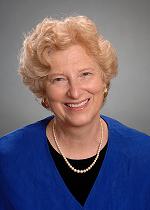
Ellen Cassedy traces her Jewish family roots back to Rokiskis (Rakishok) and Siauliai (Shavl) in Lithuania. Her writings about Lithuania past, present, and future have appeared in The Forward, Hadassah, Lilith, Bridges, and other publications. She is the award-winning author of We Are Here: Memories of the Lithuanian Holocaust (University of Nebraska Press, 2012), which appears in Lithuanian as Mes esame čia: Atsiminimai apie holokaustą Lietuvoje (Media Incognito Press, 2013). Her translations from Yiddish have been published in Pakn-treger, the magazine of the National Yiddish Book Center, and in Beautiful as the Moon, Radiant as the Stars (Warner Books, 2003.) A resident of the Washington, D.C., area, she is a frequent speaker at a variety of venues.
Visit her website at www.ellencassedy.com.
- Bookmark :
- Digg
- del.icio.us
- Stumbleupon
- Redit it
VilNews e-magazine is published in Vilnius, Lithuania. Editor-in-Chief: Mr. Aage Myhre. Inquires to the editors: editor@VilNews.com.
Code of Ethics: See Section 2 – about VilNews. VilNews is not responsible for content on external links/web pages.
HOW TO ADVERTISE IN VILNEWS.
All content is copyrighted © 2011. UAB ‘VilNews’.

 Click on the buttons to open and read each of VilNews' 18 sub-sections
Click on the buttons to open and read each of VilNews' 18 sub-sections 
















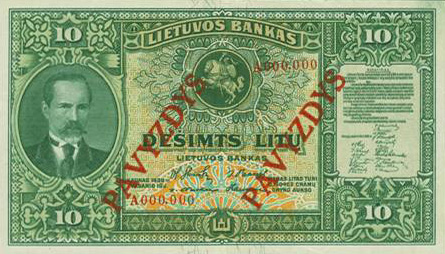











.jpg)



